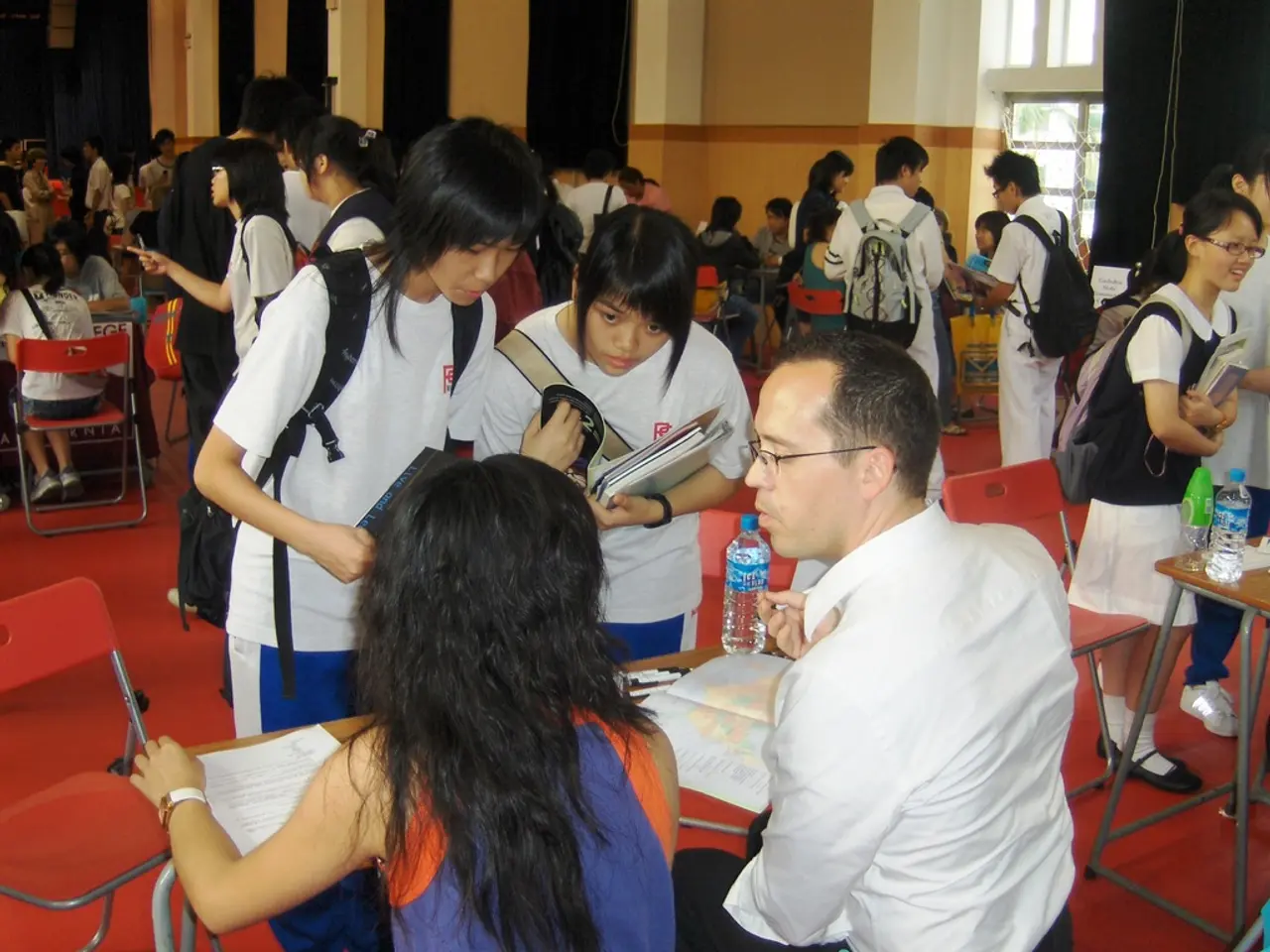Barcelona University and the Administration face inquiries over alleged professor harassment by Comuns
In a shocking turn of events, fourteen women have denounced Ramón Flecha, an emeritus professor at the University of Barcelona (UB), for maintaining sexual relations with interns over several decades. The allegations, which include abuse of power, emotional pressure, and sexual coercion, have sparked a wave of controversy and calls for action.
Flecha is known for his work in founding and leading the CREA research group, which focuses on gender-based violence. However, the university has distanced itself from CREA, stating that it no longer belongs to its research structure since 2020. Despite this, members of CREA continue to use the ub.edu domain for their website, use official university emails, and present themselves in acts and projects with the backing of the UB.
The Assembly of Feminists at the UB has demanded an independent investigation with full guarantees of protection, criticising Flecha and Marta Soler, the director of CREA, for downplaying the legal and ethical implications of the reported facts. The Assembly believes that the actions of these individuals, who hold positions of government and academic supervision, are particularly grave.
The Commons group has requested the appearance of Joan Güardià, the rector of the University of Barcelona, and Núria Montserrat, the Minister of Universities, in the Catalan Parliament to discuss allegations of harassment by Flecha. The group has also asked for the honorary title of emeritus professor to be suspended and for Soler to be removed from her post.
The European Conference on Domestic Violence 2025 (ECDV) has removed Flecha as a speaker and CREA as a co-organizer in response to the allegations. The university has assured that it will ensure that the use of its brand by research staff adheres to the regulations that govern it.
The complainants have described more than 30 years of abuse of power, emotional pressure, punishments, and sexual relations with Flecha. A group of fourteen women sent a letter to the UB's Joan Güardià on June 18th, stating that several women "report having maintained sexual relations with Mr. Ramón Flecha in a context of clear hierarchical inequality as students, interns, doctoral candidates, or subordinates".
The university maintains that it has no knowledge of the current facts and cannot open a disciplinary file. However, the lawyers representing the women complainants demand a response from the University of Barcelona that "goes beyond formal protocols". A meeting between the legal team of the complainants and the university is still pending.
Dr. Paula Martín Peláez, a feminist and gender studies expert, suggests that the UB could open a confidential information procedure and initiate an investigation. The Assembly of Feminists has asked for responsibilities to be identified and possible institutional cover-ups to be evaluated.
This case highlights the need for transparency and accountability within academic and research environments, particularly for figures who claim to advocate for feminist causes. The university's response and the outcome of the investigation will be closely watched by the academic community and the public.
The average reaction to this case within the academic community and general news outlets is intense scrutiny, given the gravity of the allegations against Ramón Flecha and the perceived contradiction between his actions and his work at CREA. The ongoing debate in policy-and-legislation circles, including calls for investigations and discussions in the Catalan Parliament, underscores the need for crime-and-justice reforms in university settings to ensure a safe and ethical environment for students and researchers.








